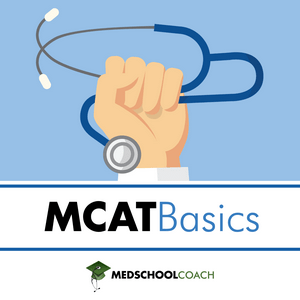Cell Organelles
This podcast explores cell organelles, organized into five categories: organelles found in all cells, eukaryotic cells, plant and bacterial cells, human and bacterial cells, human cells only, and plant cells only. The organelles discussed include ribosomes, vacuoles, cytoskeleton, plasma membrane, peroxisome, proteasome, nucleus, nucleolus, smooth and rough endoplasmic reticulum, Golgi apparatus, lysosome, cell wall, flagella, mitochondria, melanosome, and chloroplasts. Visit MedSchoolCoach.com for more help with the MCAT. Jump into the conversation: [00:00] MCAT Tutoring from MedSchoolCoach [00:34] Welcome to MCAT Basics [01:06] Topics covered in this episode [01:59] Definition of “Cell Organelles” [03:59] Organelles found in all cells - ribosomes, vacuoles, cytoskeleton, plasma membrane, peroxisome, proteasome [22:42] Organelles that show up in eukaryotes only - nucleus, nucleolus, smooth and rough endoplasmic reticulum, Golgi apparatus, lysosome [40:03] Orgnalles shared by plants and bacteria - cell wall and flagella [46:40] Organelles found in human cells only - mitochondria, melanosome, and chloroplasts


